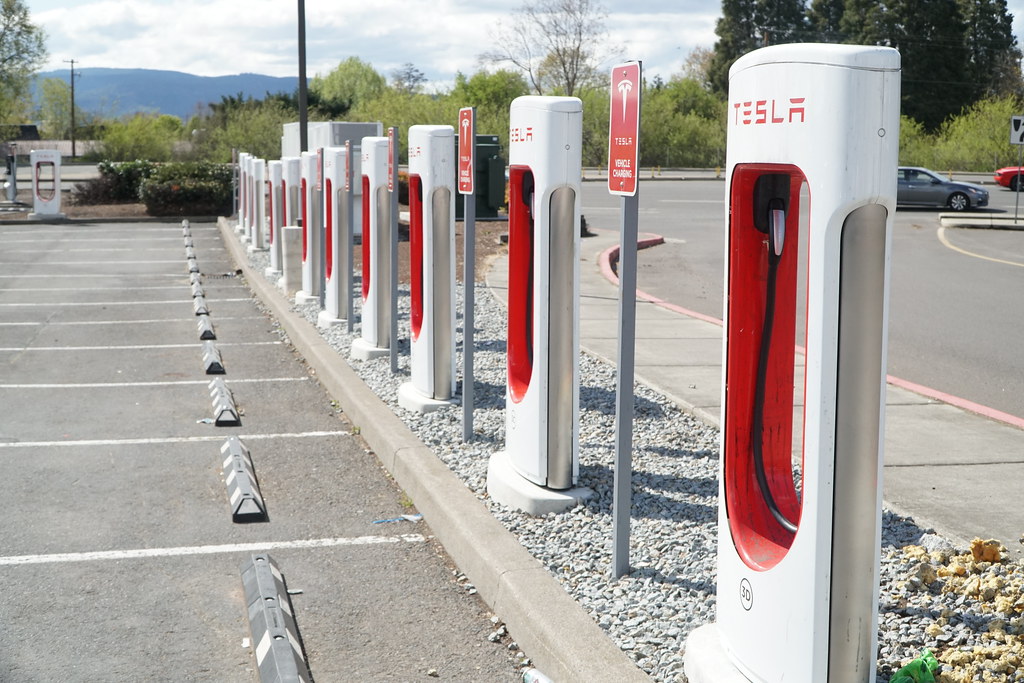The Trump administration has ordered the immediate suspension of the $5 billion National Electric Vehicle Charging Stations program, marking another setback for the green initiative spearheaded by his predecessor, Joe Biden.
This decision, which represents a significant blow to the environmental movement and to states that had begun implementing electric vehicle charging stations, was communicated through an official statement by the Federal Highway Administration.
Emily Biondi, Associate Administrator of the FHWA, reported that the new leadership has confirmed an impending review of the policies underlying the implementation of NEVI plans. The guidelines that governed the initiative, which had seen the approval of distribution systems for charging points, have been repealed and replaced with a suspension of new obligations.
Despite the freeze, the FHWA has assured that reimbursements for ongoing projects will still be guaranteed to prevent the compromise of already committed financial obligations. The program, which allocated up to 80% of costs for the design and installation of the charging stations, had seen an increase in the number of active charging ports in various parts of the country, with significant growth in the infrastructure necessary for the transition to eco-friendly vehicles.
However, Andrew Rogers, former deputy administrator of the FHWA, stated that the decision appears to disregard existing laws and the legal constraints imposed by federal courts, pointing out that it violates the 1974 Impoundment Control Act, a law that regulates the use of funds already approved by Congress for specific interventions by the U.S. president.
Even during his election campaign, Trump had harshly criticized supporters of green vehicles, saying they should “rot in hell.” He also warned against Biden’s policies, which he believed would lead to a “bloodbath” for the U.S. automotive industry. Recently, Trump also revoked an order aimed at making half of all cars sold in America electric by 2030 and further strengthened his position against the ecological transition.
The suspension of the NEVI program will have direct consequences on the electric vehicle industry, particularly for Tesla, which is the leading player in this sector. Charging stations, in fact, are a crucial element for the success of electric cars, and any delay or disruption in the expansion of the network could slow down the adoption of electric vehicles. Tesla, which has heavily invested in expanding its Supercharger stations, could find itself in a difficult position, as the lack of proper infrastructure could limit sales and the progress of transportation electrification in the United States. The uncertainty surrounding government policy could also affect investor confidence in electric vehicle manufacturers, making it difficult to achieve the ambitious goals of ecological transition.
Moreover, this decision highlights a significant inconsistency in the Trump administration’s stance on energy policy and infrastructure for electric vehicles. On the one hand, the government continues to support the fossil fuel industry, which remains the focal point of its economic agenda; on the other hand, the rollback of the EV charging program seems to ignore the strategic importance of an inevitable energy transition.
This position seems outdated, especially in a global context where many nations are investing heavily in green energy and ecological technologies. Trump’s move, therefore, not only contradicts the need to address climate change but could also harm the long-term economic competitiveness of the United States.
The future of the NEVI program and the charging network remains uncertain, while the industry awaits developments on an issue that has implications not only for energy transition but also for the political balance between different administrations.












